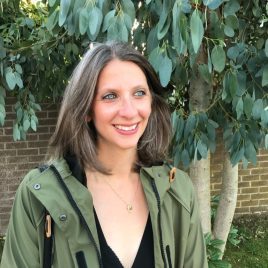In September 2023, the Arava Institute partnered with the Environmental Change Institute of the University of Oxford on a joint project to build resilience to climate change through citizen-led energy transition in Israel and the UK, generously supported by the British Council Wohl Clean Growth Alliance Grants.
In order to facilitate networking and knowledge exchange in the field of community energy management, the project will include two workshops for policy makers, representatives of academy, and entrepreneurs – one in Israel, and one in Bristol, UK. In this interview Rachel Moffat, Coordinator at the Bristol Energy Network, lays out the plans for these two meetings.

The Bristol Energy Network is an umbrella organization for individuals and community groups with an interest in energy in Bristol and the surrounding area. We work with a variety of different groups and stakeholders in greater Bristol to help people focus on energy issues, how they’re impacting their lives, and how renewable energy sources might be able to help them move forward. For example, we support individuals who are suffering from energy poverty, providing advice and information on how to reduce their bills. We also work on community-led retro-fits – making changes to domestic homes to make them less cold and reduce energy loss. The other end of that scale is generating independent energy, and to invest the profits back into the community.
How did you become involved in this current project with the Arava Institute and the University of Oxford?
Dr. Jake Barnes, the lead researcher on this at Oxford, approached us about this exchange of ideas, since he was one of the founders of the Bristol Energy Network. In England it is mostly very difficult to develop community-led renewable energy initiatives, but in Bristol the local council is very supportive, so we have been lucky to be able to make quite a lot of progress in the field. It should be interesting to compare different physical, social, and political environments, and draw conclusions that are relevant for our work as well.
What is your role at the Bristol Energy Network?
My job title is Coordinator; as such my primary role is communicating with our members. I am a matchmaker, so to speak, I connect between energy-focused organizations, and groups who are community-focused. For this cooperative project, I reached out to members of our network and researchers from the University of Bristol to organize the visit to our region.
What expertise does the Bristol Energy Network bring to this project?
We have managed to execute many successful projects despite not having government support for onshore wind, so we understand how difficult and uphill this type of work can be. We can offer insights on how to develop resilience to jump over all the different obstacles. Ultimately, specific politics are not the biggest issue; the current structure of capitalism does not support community infrastructure, and we have developed some expertise in how to work around that.
How do you think the experience of stakeholders from Bristol and Israel – two very different places – can be applicable to each other?
Energy is relevant to every community in the world. It is at the center of all our lives, no matter where you live. Most energy is controlled and owned by people and organizations of power and profit. Undoing these structures returns a lot of power to communities and can generate income and bring autonomy to local stakeholders. So there are things to be learned about the power of community energy anywhere in the world. I’m excited about this exchange because learning from a different environment what people think would work gives insight into a different approach and point of view.
Please share some of the content that is being planned for the workshop in Bristol.
The group will visit Bristol for 2.5 days. It will include some sessions of facilitated knowledge exchange between the participants from England and people from community stakeholders connected to the Arava Institute including representatives from Israeli, Bedouin and Palestinian groups, and of course they will also have opportunities for informal networking throughout the trip. They will visit England’s largest onshore wind turbine, which will be providing an income stream for the next 40 years to the community who owns it, as well as a ground and air-source heat pump, and a local café run by women who are survivors of modern slavery. At the site visits the participants will also meet local stakeholders to discuss the process and challenges they have faced. We look forward to sharing our work with the Israeli group and exploring how we can mutually benefit each other.
